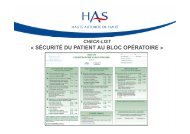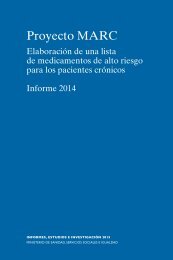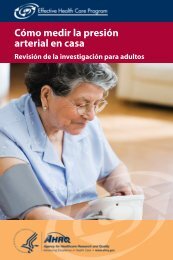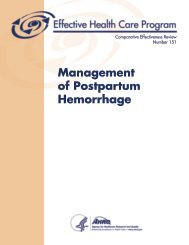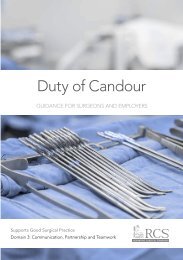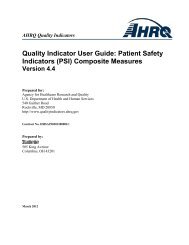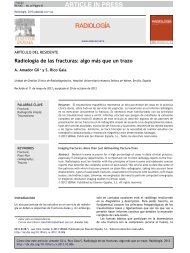for Invasive Procedures (NatSSIPs)
Z3q53
Z3q53
You also want an ePaper? Increase the reach of your titles
YUMPU automatically turns print PDFs into web optimized ePapers that Google loves.
OFFICIAL<br />
knowledge in clinical settings. Reviews of instances of wrong-site surgery have<br />
identified contributory factors that include:<br />
• Workspace and environment.<br />
• Work design.<br />
• Organisation and culture.<br />
• Task factors.<br />
• Communication.<br />
• Policies and procedures.<br />
However, non-technical skills that include cognitive and social ability are also<br />
important. Most analysed incidents involve a combination of technical and nontechnical<br />
factors. Human factors experts have concluded that many of the causes<br />
described in investigation reports cannot be adequately addressed by the resulting<br />
action plans that target each individual cause. Instead, the causes should be seen as<br />
a reflection of the current state of safety within an organisation, showing the<br />
underlying cultural and systems issues that need to be addressed at a wider level<br />
than that of the incident itself. Further, the response to new safety incidents should<br />
not be new policies and procedures, but the simplification and standardisation of<br />
existing policies, making sure that they are directly relevant to the areas in which they<br />
are used.<br />
While team members may have perfect technical skills to per<strong>for</strong>m the procedures, it<br />
is often failures in the non-technical skills that contribute to Never Events. Nontechnical<br />
skills are ‘the cognitive, social and personal resource skills that complement<br />
technical skills and contribute to safe and efficient task per<strong>for</strong>mance’. These include:<br />
• Situation awareness: not gathering enough in<strong>for</strong>mation; overlooking<br />
anomalies; not checking mental pictures with others; not recognising<br />
increased risks.<br />
• Decision-making: proceeding with the task rather than checking when<br />
uncertain; an over-reliance on assumptions as to correct location such as<br />
prepositioned patients.<br />
• Teamwork: failures in the team to speak up when the checklist was not<br />
followed; inadequate exchange of in<strong>for</strong>mation to ensure a shared<br />
understanding of what was to be done.<br />
• Leadership: not demonstrating procedural compliance, such as using the<br />
checklist; not ensuring the whole team had a shared awareness of the<br />
task.<br />
• Coping with stress: not dealing effectively with work pressures; requiring<br />
staff to work faster.<br />
Non-technical skills are taught in a number of safety-critical industries, most notably<br />
aviation, where this was first introduced in the <strong>for</strong>m of Crew Resource Management<br />
(CRM) courses. Firstly, the relevant non-technical skills need to be identified, and<br />
then a training course is designed to improve understanding of the skills and to<br />
explain how they can influence safety and efficiency. These are usually classroombased<br />
courses with exercises, demonstrations and opportunities <strong>for</strong> structured<br />
practice and feedback.<br />
12



